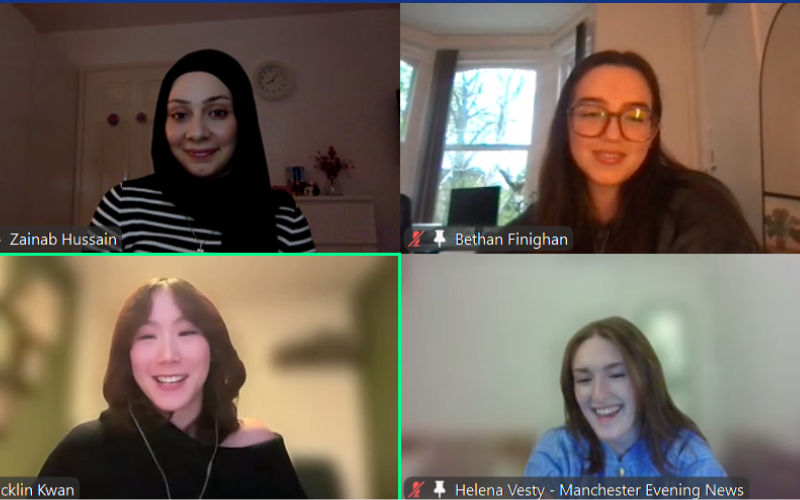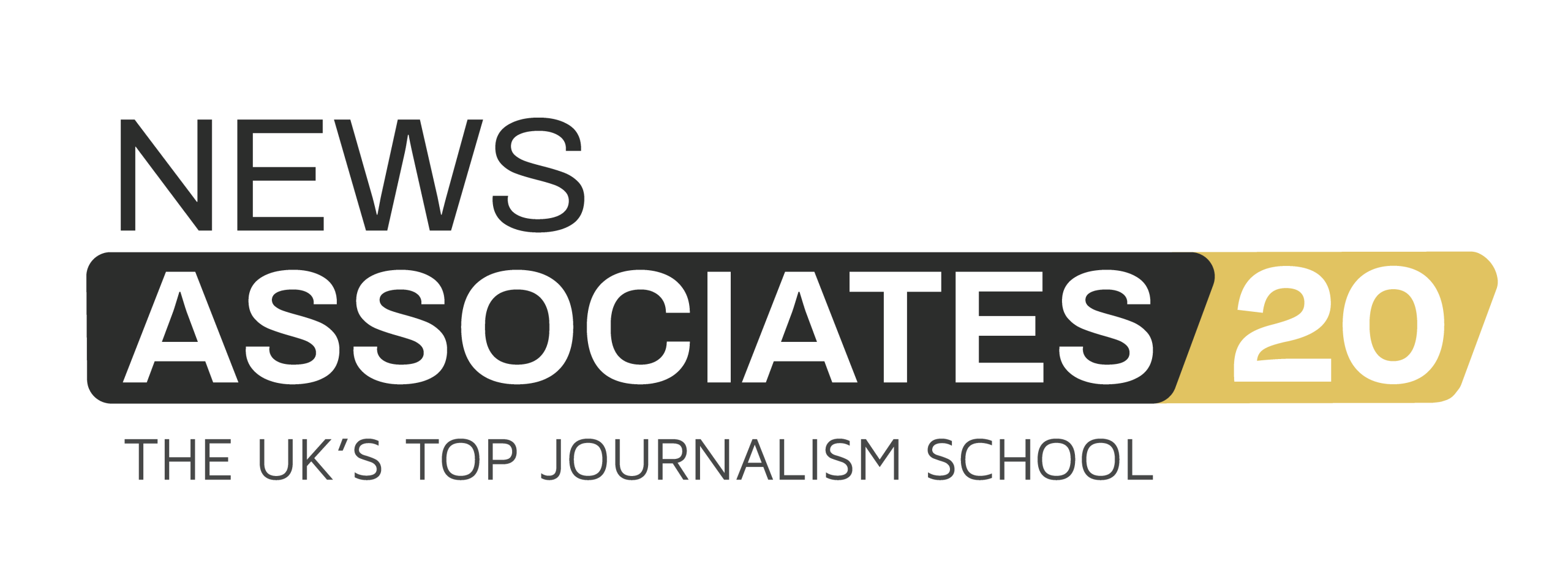Everything we learnt from our ‘Health and Science Journalism’ panel
Ever wondered how you can get into health and science journalism? We hosted a panel with four outstanding science journalists who told us all about their pathways into the industry, greatest moments and top tips for early-career journalists looking to break into the industry.

We heard from Manchester Evening News health and social care correspondent Helena Vesty, Manchester Evening News science and innovation writer Bethan Finighan, freelance science journalist Zainab Hussain and freelance science journalist Jacklin Kwan.
All of these panellists completed their NCTJ with News Associates.
We asked our panellists about what makes a science story newsworthy.
Bethan said: “Something that is going to gauge people’s interest where they can can get to the end of the story and learn something they didn’t know at the start.
“Picquing people’s interest is the key to a science story because so much of what we could be reporting on isn’t very accessible to the general public.
“Science journalism is about making something complex and often difficult to get your head around relayed in an accessible way.”
Jackin said: “What makes a great science story is showing that earnest love of what science can provide for society.”
Helena said one for her career highlights so far was being given access by cancer patients from The Christie Hospital in Manchester to document their experiences in theatre.
She said: “I did one story about one man who has prostate cancer and was having his treatment done by some new robots controlled by a surgeon.
“The story was talking about this advancement in robotic surgery which was incredible to see, and stand in the room for several hours watching.”
Zainab said her career highlight was a story she wrote in 2024 for Chemist and Druggist about mass closings of UK pharmacies.
Through Facebook, she met a pharmacist of 30 years who lived on a UK island.
This island only had one pharmacy which was geographically inaccessible for most of the elderly population.
He had been working to get another pharmacy opened on the island but the NHS had taken over a year to get the agreement signed for it to go ahead.
The article led to an online petition and politicians got involved to make it happen.
She said: “It was really interesting for me to work on as it goes to show how important health is.
“I was speaking to a group of people who were really in need of a health service that they couldn’t have.
“During my work I was bringing attention to the problem.”
All of these fantastic journalists completed their NCTJ with us. We asked them what the most important lesson they learnt at News Associates was.
Zainab said the most helpful thing she learnt was finding out how to source interviewees.
Our course taught her how to engage with individuals, organisations and communities in health and science through social media.
She said “I would attribute this a lot to my success in my career and these are all skills I learnt at News Associates.”
Helena said: “I still use shorthand every single day and I’m seven or eight years into my career!”
She recalled her first day at News Associates where our tutors asked trainees to go out into the street and find a story.
“The skill of going up to anybody and being able to talk to them and find out about their lives and finding the interesting thing that readers will connect with.”
Today’s front page 📰 Thousands of patients are staying in hospital for longer than necessary – as Greater Manchester hospitals struggle with ‘extreme overcrowding’, 36 hr waits, and A&Es filled with 180 ppl because of scare beds. Read the full story here: https://t.co/qNklJdLC1Q pic.twitter.com/YvCqp9Wx1b
— Helena Vesty (@HelenaVesty) January 8, 2025
Jacklin said the media law training has helped her write strong long-form investigative stories.
She said: “It really does influence how you write and approach stories, like thinking of what I need to find more evidence in.”
She added: “Having those really experienced mentors that hash out ideas with you is an experience you won’t get again.
“The mentors that you have access to that have so much experience in the industry are super invaluable.”
Bethan said she has learnt the value in giving everything a go.
She said: “They really encouraged us to try everything, to not put ourselves in a box and to not be fussy about the stories you are covering.”
Even though she knew she wanted to be a science journalist, she covered – and enjoyed – stories about anything and everything.
She said she was happy to be pushed out of her comfort zone.
Tune in for the girlboss space event of the century https://t.co/aTBfXH23Zr
— bethan finighan (@FinighanBethan) April 14, 2025
We asked each of our speakers for their best piece of advice for anyone wanting a career in science journalism.
Jacklin said: “Just start writing anything!
“I came in super naive thinking I already knew how to write. I look back at some of the stuff that I wrote and I cringe a bit. It’s something everyone has to go through but the sooner you can get through it, the better you become as a writer.”
Helena said: “Stay interested in people.
“Speaking to a lot of different types of people whether that’s through charities or voluntary groups, friends and family, on Facebook – you can find something interesting anywhere.”
Bethan said: “Demonstrate an interest and understanding of all science.
“Don’t put yourself in a box and write about anything you’re curious about.”
Zainab said: “Just don’t be afraid, just go for it.
“If you need to ask follow up questions during an interview, do it. If you don’t understand what you’re asking about, chances are that’s going to be presented in your writing.”
Did this panel motivate you to kickstart your writing career? Find out where to pitch freelance here.
We are always hosting free journalism events just like our science and health journalism panel. Sign up here for more!


